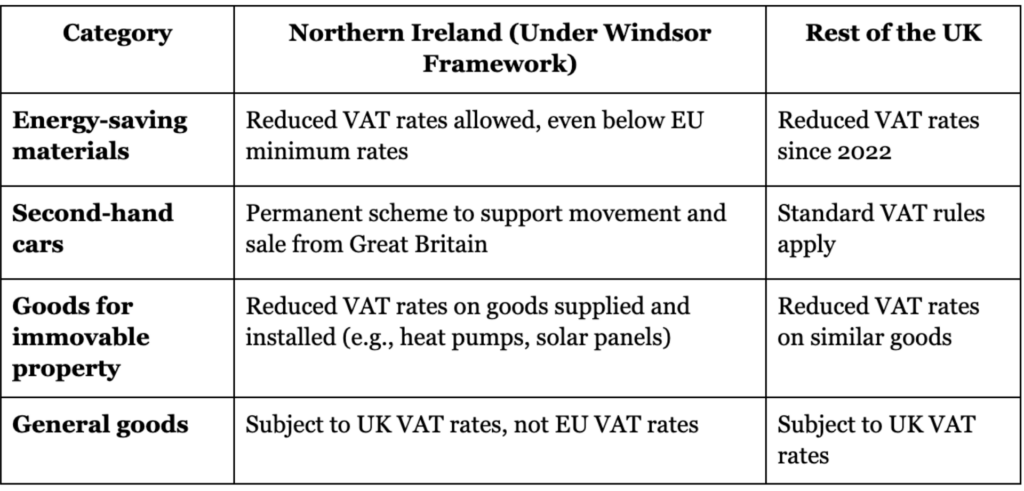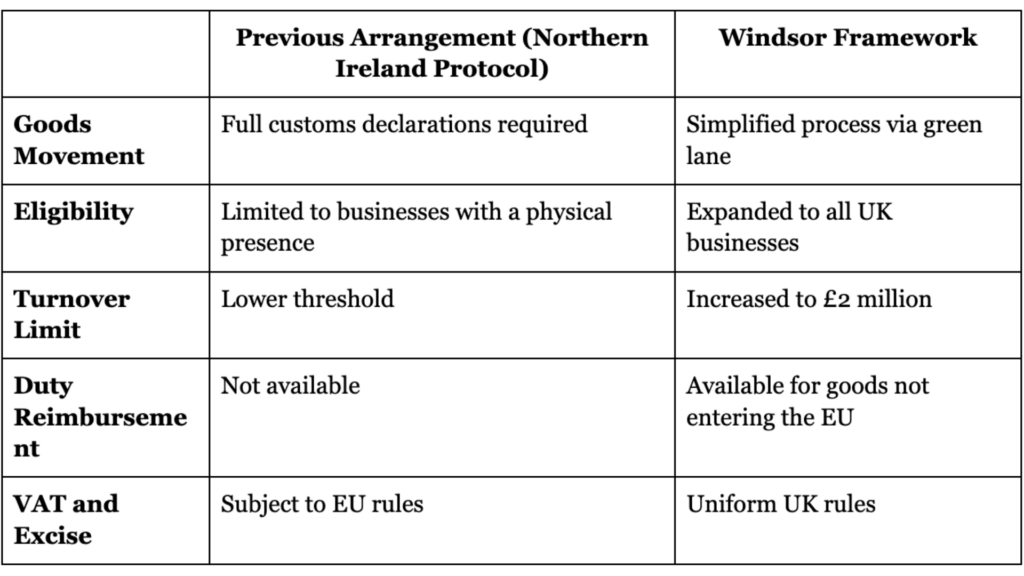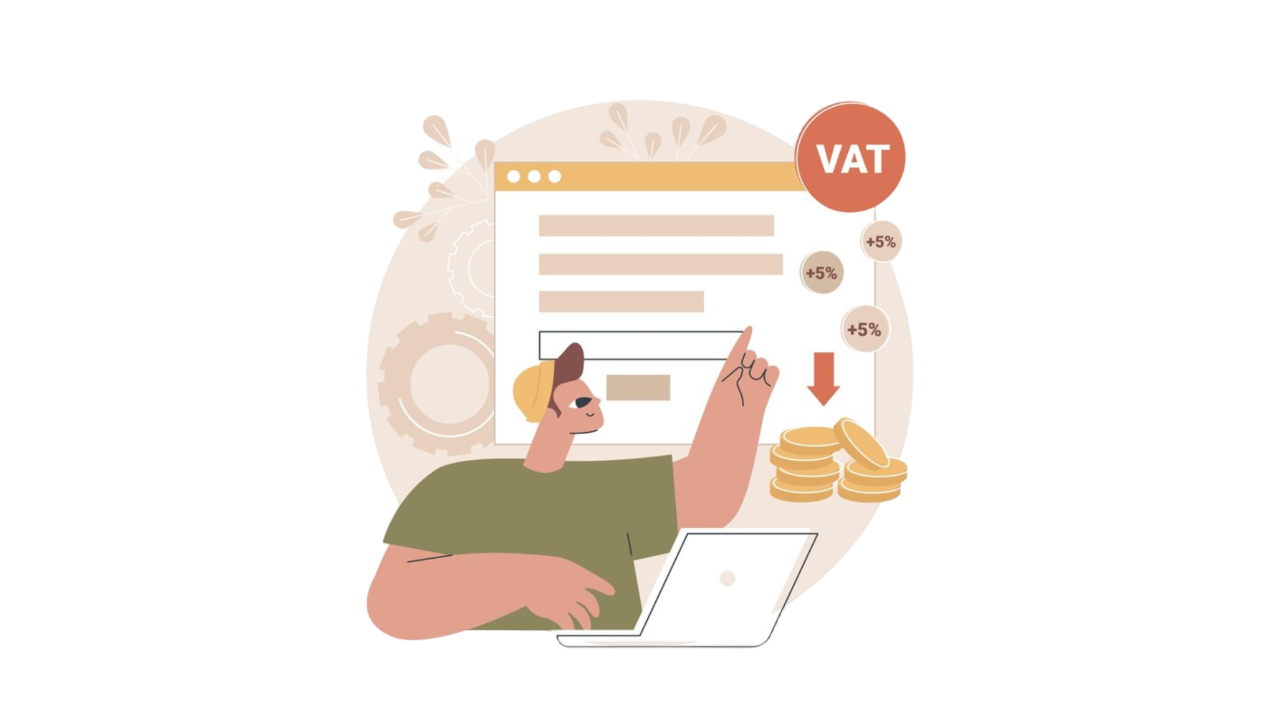The Windsor Framework is a new trade regulation that was developed to address post-Brexit trade concerns between the United Kingdom (UK) and the European Union (EU). Recently, there have been changes in trade and customs regulations that have affected the Value Added Taxes (VAT) and duties. For businesses operating in the UK, understanding these changes is important to adapt to new regulations and ensure compliance.
This article provides a snapshot of what the Windsor Framework stands for, VAT and duty rules under this framework, and compliance reporting responsibilities for businesses.
Overview of the Windsor Framework
Windsor Framework is a post-Brexit legal agreement between the (EU) and the (UK) aimed at addressing issues that flow from the Northern Ireland Protocol.
Announced on February 27, 2023, and effective from October 1, 2023, the framework helps facilitate smoother trade between Northern Ireland and the rest of the UK while maintaining Northern Ireland’s access to the EU single market.
The Windsor Framework imposes a dual VAT system, allowing Northern Ireland to follow UK VAT rules for certain goods while adhering to EU VAT rules for others. It also implements a “green lane” for goods destined for Northern Ireland, reducing customs checks and paperwork, and a “red lane” for goods at risk of entering the EU market.
Key elements of this framework include:
- Northern Ireland’s unique position, benefiting from both UK and EU markets
- The dual VAT system that simplifies tax regulations for businesses
- A reduction in customs checks, ensuring a smoother flow of goods
VAT Implications under the Windsor Framework
The Windsor Framework brings certain implications for business as mentioned below:
- Unified VAT Rules: Northern Ireland will now follow the same VAT and excise rules as the rest of the UK under unified VAT rules. This implies that changes such as zero-rate VAT for energy-saving materials could be uniformly applied across the UK.
- Green Lane System: A new UK internal market system, known as the “green lane,” will simplify the movement of goods between Great Britain and Northern Ireland. Businesses that can demonstrate their goods will remain in Northern Ireland will benefit from reduced paperwork and customs checks.
- Increased Turnover Limit: The turnover limit for businesses involved in processing goods under the green lane scheme has been increased to £2 million. This expansion allows more businesses to benefit from simplified processes.
- Flexibility on VAT Rates: The framework allows for more flexibility in setting future VAT rates and removes the limit on the number of reduced and zero rates in Northern Ireland.
To manage these VAT implications, businesses need to register under the new UK internal market system. This system makes it easier to move goods within the UK and helps businesses keep accurate records to show they’re following the new rules.
VAT Rate Implications under the Windsor Framework
There are certain changes in VAT rates under the Windsor Framework that are significant. Here’s a table illustrating the differences in VAT rates under the Windsor Framework:

Duty Implications under the Windsor Framework
The Windsor Framework introduces several changes to the duty rules for goods moving between Great Britain and Northern Ireland. Here are the key points:
- Duty reimbursement scheme: Allows traders to reclaim EU duty paid on goods that can be shown not to have entered the EU. This scheme can apply to goods moved since 2021.
- Customs duty waiver: Allows businesses to claim a waiver from paying customs duty on “at risk” goods if the amount of duty involved is below certain limits. Most businesses can claim up to €200,000 of aid over three tax years.
- Refunds: If there is no practical alternative to paying tariffs, a process has been put in place to allow refunds if it can later be shown that goods have remained in Northern Ireland.
Here is the table comparing duty rates under the previous arrangement vs. the Windsor Framework.

Goods moving between these regions are treated as exports and imports for VAT purposes, requiring meticulous documentation and compliance with HMRC regulations. This includes ensuring all paperwork, proof of due diligence, origin, VAT, and duty payments are in order.
These changes have substantial implications for accounting practices, requiring accurate bookkeeping and timely reporting. Businesses may benefit from outsourcing these complex compliance needs to professional bookkeeping and accounting service providers.
Conclusion
Understanding the Windsor Framework is crucial for businesses trading between the UK and the EU. The new rules on VAT and duties can affect how businesses operate every day. It’s important to stay updated on these changes and make necessary adjustments to remain compliant.
Working with UK business outsourcing services providers like GJM & Co. can help your businesses manage these new regulations. We also help you with payroll management, Business Formation, Virtual CFO, Taxation, and more.
To understand VAT and Duty implications under the Windsor Framework, schedule a call with us or write to us at info@gjmco.com.
